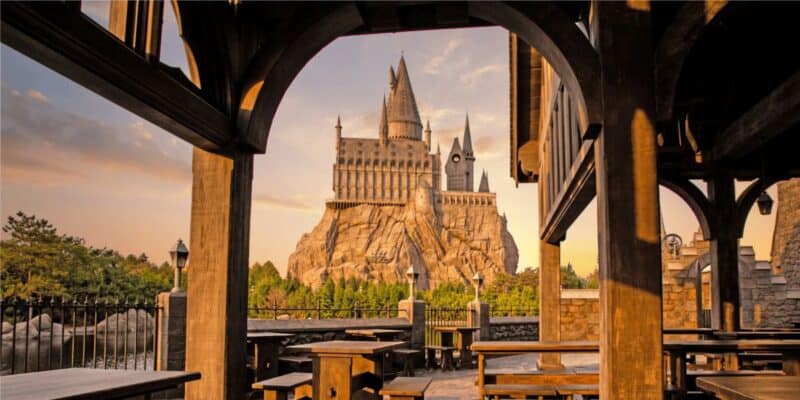A recent report suggests that one of Universal’s newest theme parks isn’t doing so hot financially.
For decades, Universal has relied on a tried-and-tested formula of attractions and entertainment inspired by fan-favorite movies to lure in guests. While some of its parks – primarily Universal Studios Japan but also Universal Studios Hollywood and Universal Orlando Resort – have embraced video game franchises, namely Nintendo, to inspire recent additions, Universal’s stamp on the theme park scene very much revolves around classic movie IP.

Some of the most popular additions to its parks in recent years revolve around Harry Potter. Over a decade since the Wizarding World of Harry Potter was first added to Islands of Adventure in Florida, multiple other attractions inspired by JK Rowling’s magical world have joined its global lineup, including Hogsmeade areas in Hollywood, Japan, and Beijing.
But if the numbers are anything to go by, Harry Potter isn’t a surefire success everywhere.
‘Harry Potter’ Drags Down Financial Performance of Universal Theme Park
According to CAC News, Universal Studios Beijing has lost 3 billion yuan (approximately $421 million) in the four years since it first opened.

While these financial struggles likely come down to multiple factors – such as the fact that it contended with COVID-19-related closures for the first year of its existence – some have pinned the losses on the fact that the park lacks IP that directly appeals to the Chinese audience.
At Universal Studios Beijing, visitors can explore seven immersive lands, each bringing blockbuster films and franchises to life. Highlights include The Wizarding World of Harry Potter – Hogsmeade, Transformers Metrobase (a park-exclusive land), Minion Land, Jurassic World Isla Nublar, Kung Fu Panda Land of Awesomeness, Hollywood, and WaterWorld.
But CAC News reports that both Harry Potter and Transformers lack the same enthusiastic fanbases in China. Both are reportedly “critically acclaimed but not commercially successful,” yet they make up two of the park’s premier lands.

The theme park – which cost 46 billion yuan to build – has apparently failed to “adapt to the Chinese environment” in the same way as its biggest rival, Shanghai Disneyland. The latter opened five years before Universal Studios Beijing and made a concerted effort to adapt traditional Disney aspects to the audience, such as by prioritizing the modern aesthetic of certain attractions and integrating more advanced technology.
In the words of Disney CEO Bob Iger, the park was “authentically Disney and distinctly Chinese.
CAC News highlights Marvel superheroes speaking in local dialects, the embrace of local festivals, and Mickey Mouse wearing a Tang suit as some of the ways that Shanghai Disneyland has adapted to the local market. In comparison, the Wizarding World of Harry Potter is distinctly British in vibes, the Transformers dialogue lacks a single Chinese pun, and the park’s guide map allegedly uses English labels.

The publication quotes one visitor as stating, “I came for Harry Potter, but even a glass of Butterbeer in the park doesn’t taste like London.”
For Universal Studios Beijing, adapting to the local market means finding ways to merge global franchises with Chinese cultural touchpoints. CAC News suggests that a Harry Potter “Chinese-style academy” could serve as a creative extension of Hogwarts. By weaving in familiar cultural references, the park would lessen the sense of distance and give Chinese guests a feeling of ownership within a beloved global brand.
Equally important is attention to detail. Universal Studios Japan has shown how tailoring décor and offerings to local traditions – whether cherry blossom paths in spring or seasonal food packaging – can heighten immersion. Universal Studios Beijing could take a similar approach, integrating subtle cultural elements into seasonal overlays, menus, and merchandise. Combined with interactive experiences tailored for Gen Z, such as role-playing adventures or live-action mystery games, these efforts would ensure that the park feels both authentically Chinese and uniquely Universal.
Have you ever visited Universal Studios Beijing?
